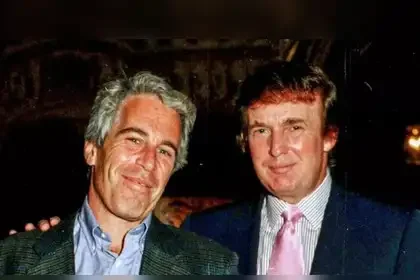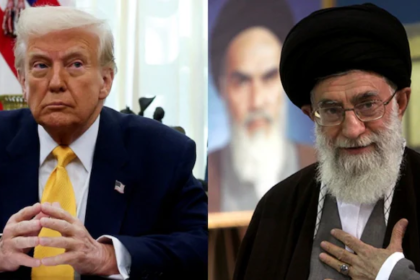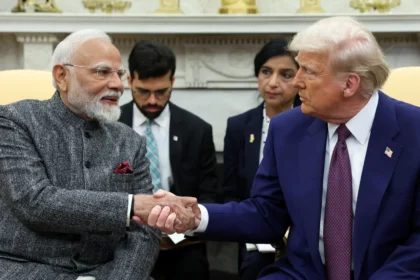Thailand’s King Vajiralongkorn Is the World’s Richest Monarch With 300 Luxury Cars, 38 Jets, and 52 Yachts
Thailand’s King Vajiralongkorn Crowned World’s Richest Monarch, Surpassing King Charles III
Thailand’s King Maha Vajiralongkorn, known formally as King Rama X, has emerged as the wealthiest monarch in the world, with his personal fortune vastly exceeding that of other reigning royals. According to recent reports, his net worth is estimated to fall between $30 billion and $70 billion — a figure that far surpasses the estimated $747 million attributed to King Charles III of the United Kingdom.
This substantial wealth has not only solidified Vajiralongkorn’s position as Thailand’s most powerful figure but also elevated him to global prominence for his extraordinary royal lifestyle and expansive control over national assets.
An Empire of Assets and Power
Much of King Vajiralongkorn’s fortune stems from the vast holdings and financial control inherited from his father, the late King Bhumibol Adulyadej, who passed away in 2016. Following his ascension to the throne, Vajiralongkorn assumed authority over the Crown Property Bureau (CPB) — a body that historically managed the royal family’s assets on behalf of the state. In 2018, King Rama X formally placed CPB assets under his direct control, effectively consolidating personal ownership of what was once considered public or state-aligned property.
The CPB controls one of the largest and most lucrative real estate portfolios in Thailand. The monarch is believed to own more than 17,000 properties in Bangkok alone, including luxury hotels, historic palaces, and prime commercial real estate, making him one of the capital’s largest landowners.
A Lifestyle of Royal Extravagance
King Vajiralongkorn’s opulence is perhaps most visibly represented by his staggering collection of luxury vehicles and aircraft. His royal garage includes 300 high-end cars, ranging from rare vintage Rolls-Royces to modern-day supercars from top global manufacturers. The king also maintains a personal air fleet comprising 38 private jets, allowing for unparalleled travel flexibility and security.
Adding to the grandeur is his fleet of 52 ceremonial golden boats, used in traditional Thai royal processions on the Chao Phraya River. These elaborately designed vessels highlight the continuation of age-old Thai customs and symbolize the enduring fusion of monarchy and national identity.
Educational and Military Background
Born in 1952 to King Bhumibol and Queen Sirikit, Vajiralongkorn is the only son of the royal couple. Educated internationally, he attended the prestigious Royal Military College, Duntroon in Canberra, Australia, where he earned a degree in military studies. Vajiralongkorn is a trained jet and helicopter pilot and has undergone extensive military training in both the UK and Australia.
His military career included active service in Thailand’s Royal Army during the 1970s, where he participated in counter-insurgency operations in remote regions. This military involvement helped bolster his domestic image as a strong and capable royal figure, ready to safeguard Thailand’s sovereignty.
Social Contributions and Philanthropy
Despite his vast personal fortune and lavish lifestyle, King Vajiralongkorn has initiated several social welfare projects under the royal umbrella. One notable initiative is the establishment of “Crown Prince Hospitals” — medical centers built using public donations aimed at providing healthcare access to residents in rural areas. These efforts are positioned as part of the monarchy’s broader mission to uphold public welfare in alignment with Buddhist and royal values.
International Headlines and Legal Scrutiny
Not all news surrounding the Thai monarch has been confined to ceremonial grandeur or philanthropy. In August 2011, the German judiciary seized one of his Boeing 737 aircrafts in Munich due to a long-standing financial dispute involving the Thai government. The seizure — related to a debt of approximately €30 million — stirred international attention and highlighted the global entanglements of Thai royal affairs.
Later in November 2016, a report by Germany’s Manager Magazin speculated that the newly crowned monarch could be liable for inheritance tax exceeding €3.5 billion, based on his numerous property holdings in Bavaria, where he frequently resides. These developments spotlight the complex intersection of monarchy, wealth, and legal accountability in both domestic and international arenas.
A Symbol of Monarchical Power in Modern Times
Thailand’s constitutional monarchy has long held a revered place in national culture and politics. While the king’s political role is largely ceremonial under the Thai constitution, his immense wealth and institutional influence continue to shape policy and societal norms.
King Vajiralongkorn’s reign, marked by both tradition and transformation, has seen the monarchy reclaim significant authority — particularly over national assets and governance matters once shared with the state. His economic might and global visibility make him an exceptional figure among the world’s royal elite.
Global Comparison
By comparison, King Charles III of the United Kingdom — once considered one of the world’s most powerful royals — maintains a net worth under $1 billion. While Charles controls historic estates like Balmoral and Sandringham and receives income from the Duchy of Lancaster, these holdings pale in scope when contrasted with the magnitude of Vajiralongkorn’s direct control over real estate, luxury assets, and aviation.
Conclusion
King Maha Vajiralongkorn’s ascension as the world’s richest monarch underscores a remarkable convergence of inherited legacy, strategic consolidation, and a lifestyle befitting ancient royalty in the 21st century. With his towering fortune and continued consolidation of institutional power, King Rama X exemplifies the enduring influence of monarchy in a modern global landscape — a role both admired and scrutinized in equal measure.
Also Read : Kilauea Volcano Eruption Sends Lava Fountain 1,000 Feet High Over Hawaii








